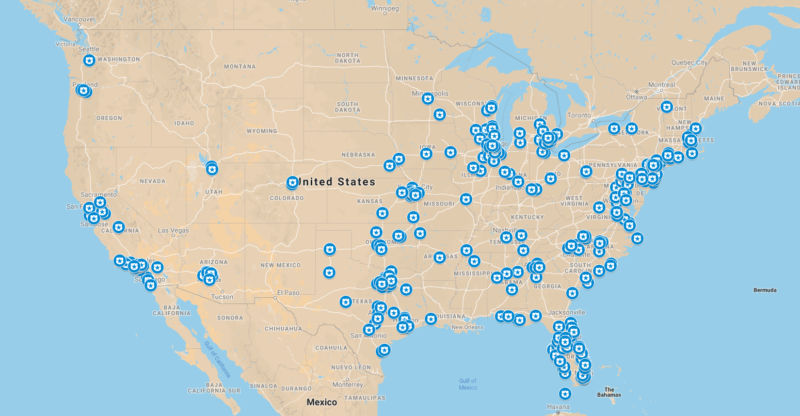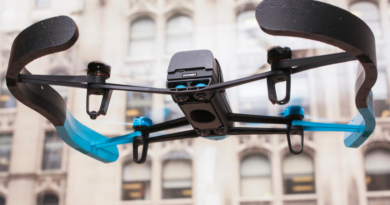Ring Reportedly Shared Video And Map Data With Police In 2018

Ring, Amazon’s home security camera and surveillance company, has since 2018 rapidly expanded its business by partnering with more than 400 police and sheriff departments nationwide. Amid a growing chorus of privacy complaints and media reports about these partnerships, Ring has repeatedly promised explicitly that police have no way of knowing details of who has the cameras installed and which residents are—or aren’t—willing to share their footage. New reports, however, indicate that police departments may be receiving more data about Ring users in their jurisdictions than previously disclosed.
Gizmodo reports today that documents it obtained from a Florida police department included emails from Ring “about the number of times residents had refused police access to their cameras or ignored their requests altogether.”
Owners of Ring devices can connect them to an app called Neighbors, which is also available for the general public to use. The app collects “crime reports” from participants, who can also choose to upload images and video either directly from their Ring devices or uploaded from other sources.
Police who partner with Ring have access to a sort of companion portal, which among other things allows them to send out an email blast to all Neighbors members in a specific area asking them to share footage captured during a window of time as part of an investigation. “Law enforcement agencies who participate in the Neighbors app must go through the Ring team when making a video request to customers,” a Ring representative told Ars earlier this week. “Customers can choose to opt out or decline any request, and law enforcement agencies have no visibility into which customers have received a request and which have opted out or declined.”
Ring representatives have been pushing “engagement” hard on the police departments they work with, and the data obtained by Gizmodo makes it easy to see why. The police department in question issued 22 requests for footage between May and September 2018, Gizmodo found, leading to 319 distinct emails being sent to residents asking them to hand over footage. They received permission to access a total of 11 files, a 3.5% success rate.
Gizmodo notes that customers seemed intuitively to understand that the “do not share” option in the emails they received was not worth the effort: exactly zero recipients of the email clicked the button, instead simply ignoring or deleting the email 308 times.
In one email, a Ring manager admitted that more granular data could be helpful. “Did one person share 11 videos or did 11 people share one video each,” the manager wrote. “We will have a better idea after we collect more data.”
Ring now keeps statistical data of this type to itself, the company told Gizmodo. “This is not representative of our current policies or the current video request process,” the company said. “Ring does not provide video request data to law enforcement agencies.”
Now you see it…
Ring doesn’t like for its law enforcement partners to share information about the portal back-end with the public. CNET last week published a roundup of those features Ring might wish to keep quiet, including a “heat map” showing where police could find active Ring devices in their area. Ring told Ars on Wednesday that it “recently updated the steps law enforcement partners take” to request video during an investigation, and “as a result, there is no device density heat map” available any longer.
While heat maps may no longer be available, at one time Ring did indeed provided detailed maps to its partners. The Guardian obtained documents it published today showing the evolution of the agreement between Ring and Gwinnett County, Georgia, just outside of Atlanta.
Ring approached the Gwinnett police in August 2018, The Guardian found, and the agreement was approved by the police in May of this year. The records show that Ring heavily edited the press release Gwinnett authorities used to discuss the deal, as seems to be standard for these arrangements.
During those months, Ring also provided the Gwinnett police with a map showing the locations of “hundreds” of Ring devices within the county borders
The Electronic Frontier Foundation calls Ring “a perfect storm of privacy threats.”
“The rapid proliferation of this partnership between police departments and the Ring surveillance system—without any oversight, transparency, or restrictions—poses a grave threat to the privacy of all people in the community,” the EFF said. “The growing partnerships between Amazon and police departments corrodes trust in an important civic institution by turning public servants into salespeople for Amazon products.”
READ MORE HERE


